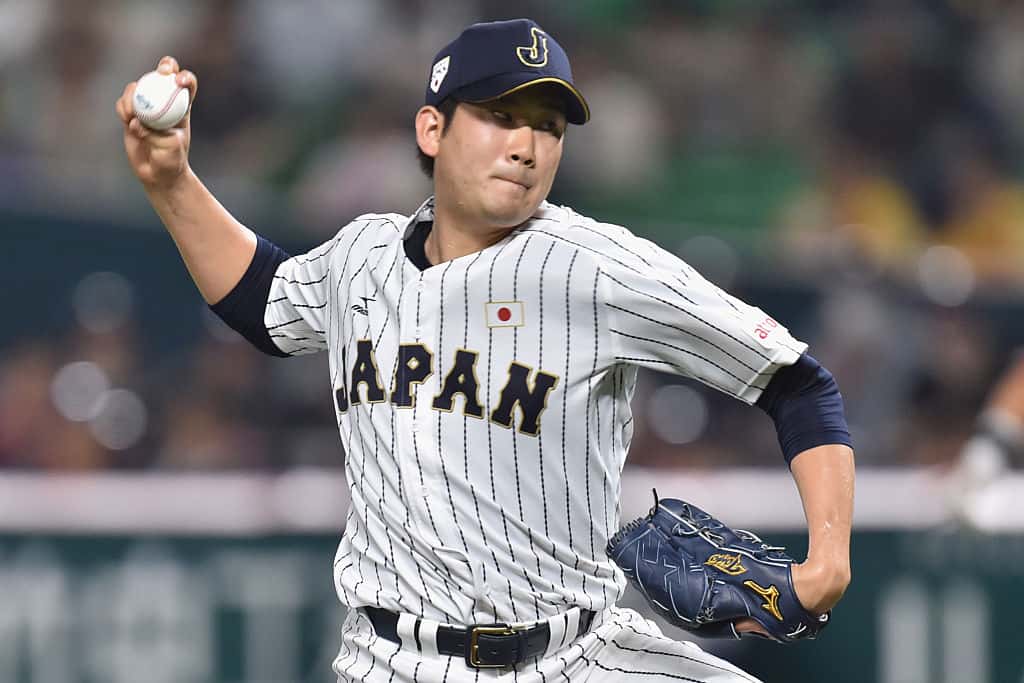The obsession with baseball is unmatched in Japan, and the experience of attending a game is unlike any other sports experience on Earth.
Sure, Japan sees no shortage of raucous fans filling stadiums, from rugby to wrestling. But all other sports forever live in baseball’s shadow.
With a season nearly as long as Major League Baseball’s (April into October), plus playoffs, catching a game is easy. Gameday tickets are often available at the stadium, or you can purchase in advance online through any team’s English-language website. And best of all, the games all tend to run under four hours; unlike American baseball, a game can end in a tie.
Besides professional baseball, there is the national high school baseball tournament each summer that’s known as Koshien and represents an important cultural moment. A total of 49 teams compete in the early summer months with the hope of taking part in the final the playoffs August in the Koshien district of Nishinomiya City, Hyogo (just west of Osaka). The tournament began in 1915 and has grown to become a sort of national festival, televised nationally and drawing an average of 50,000 fans per day.
Soaking in the experience
The most important thing to know: Japanese baseball, or puro yakyū (“field ball”) is rowdy. Those spells of relative boredom between innings, batters or pitches in American baseball? They don’t exist here. Brass bands blare fight songs, and each batter has his own special cheer that fans sing in unison as he steps into the box. There are even cheerleaders. Plus, you can expect to see thousands of balloons fly into the air or umbrellas open and wave when there’s a home run. No dull moments here.
And the food? Forget peanuts and hot dogs. Settle in for some delicious yakitori (chicken skewers), yakisoba noodles or beef curry and rice. To wash it all down, try the sake or red wine. But do give the beer a try when you see a vendor walk by your seat — you’ll get a fresh cold one pulled directly from a specially designed backpack keg.
One thing you shouldn’t expect to see: a foul ball flying in your direction. Japanese stadiums typically have more safety netting. But should a ball soar into the stands, ushers point sonic devices toward the seats in the line of fire to warn fans of the incoming ball.
Beyond these differences, you’ll find the experience largely the same — just louder, rowdier and probably tastier, all for about half the price you’d expect to pay at a Major League game in the U.S.
How the obsession took hold
So how did baseball become so big in Japan? Well, much like connecting with a fastball and sending it over the outfield wall, it was all about timing.
Baseball was introduced by an American teaching English in the 1870s. As the story goes, the concept of a team sport was completely novel at the time. And since mastering baseball requires discipline and a dedicated work ethic, the sport instantly appealed. In the mid-1930s, once a professional league took hold, a group of American all-stars including Babe Ruth and Lou Gehrig played a series of exhibition games in Japan. That cemented baseball’s popularity; and, of course, the contingent of American servicemen helping rebuild the country after World War II brought bats, balls and gloves to pass the time — and keep the sport alive.
The current baseball scene
What ultimately helped professional Japanese baseball thrive was a group of highly competitive corporate sponsors and team owners, who still run the sport today. That’s why you have teams such as the Nippon-Ham Fighters in Hokkaido, the Fukuoka SoftBank Hawks and the Tokyo Yakult Swallows (Yakult is a probiotic milk drink), to name a few. Every major city is home to one or more clubs in the 12-team league, each named for its sponsor or owner. But perhaps the most iconic place to see a game is the Tokyo Dome, home of the Yomiuri Giants.
Several top Japanese players in American Major League Baseball were at one time on the Yomiuri Giants’ roster, including New York Yankees icon Hideki Matsui. The current Giants lineup includes several stars of the Japanese game, including foreigners such as former L.A. Dodgers’ shortstop Alex Guerrero (Cuba), former Milwaukee Brewers pitcher Taylor Jungmann (USA) and former Tampa Bay Devil Rays’ pitcher Scott Mathieson (Canada).
After you score a ticket to a game, the only things you need to bring are open eyes to soak in the excitement, an empty stomach — and perhaps a set of earplugs.

